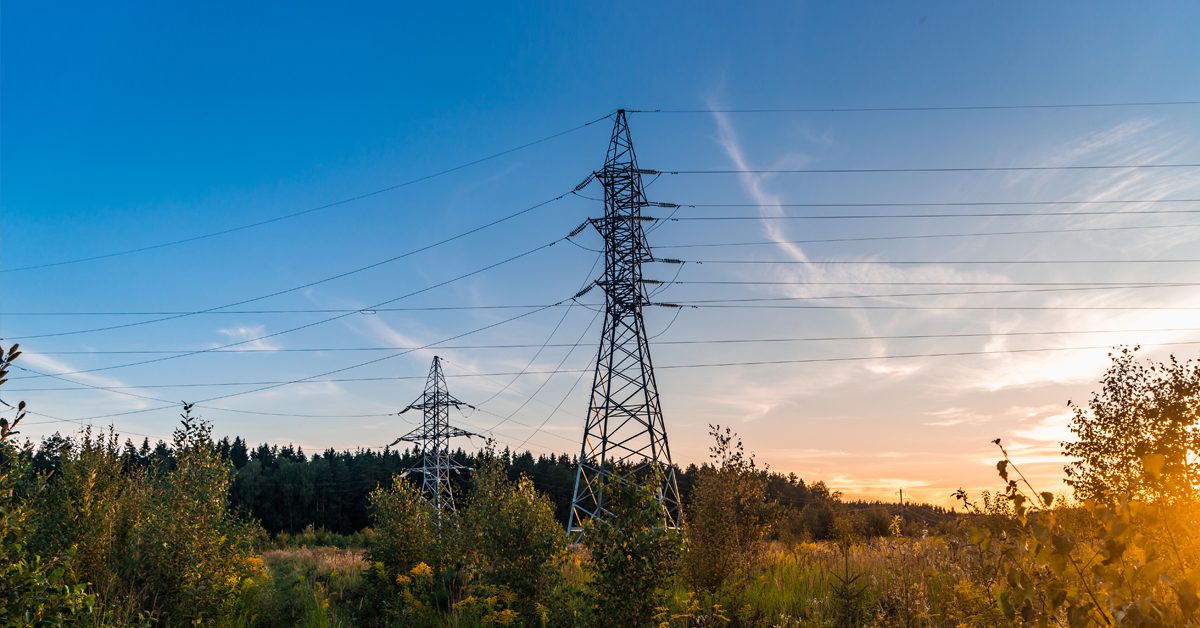One of the most likely crises we may face is power outage, so here is a basic response checklist for individuals and families.
WHAT TO DO BEFORE A BLACKOUT
- Keep the family in prayer to ask the Lord for help, guidance, peace of mind and heart, and strength
- Know your neighbors
- Draft a family emergency and communication plan, and practice it regularly
- Have CORAC and emergency contact numbers printed and accessible at all times
- Know in advance any regional/local CORAC shelters and have printed directions and contact information for them, in case you have to evacuate
- Gather and store a supply of emergency food and water for your family
- Begin with 72-hours’ worth
- Water: 1 gallon/person/day
- Gradually build up a supply to 1 week, 1 month, 1 year, etc
- Consider dehydrating herbs/fruits/and veggies and prepare in bite-sized nutritional servings; easy to store and require little prep
- Stock up on food and water for pets and livestock
- Begin with 72-hours’ worth
- Keep a flashlight in every room in the house
- Build a Berkey-style water filter from 5-gallon buckets (see video link in the Resources document)
- Have a plan for dealing with human waste
- Consider building a camp toilet (see video link in the Resources document)
- Get small garbage bags to line the camp toilet
- Get cat litter, sawdust, or agricultural lime to cover feces (eliminates odor and flies). Wood ash and dirt will also work.
- Save # 10 tin cans.
- Keep one with a lid for storing supplies: TP and resealable wipes and bury another flush with the ground below the makeshift toilet in the ground.
- Have either dirt or cat litter in a mound with a shovel nearby to cover waste between uses. Tends to be more sanitary due to no handling of the waste.
- Have a first-aid kit prepared and have it accessible
- For family members who may need them, have on hand:
- Over-the-Counter (OTC) medications
- Insulin
- Prescription medications
- Inhalers
- Thyroid meds
- Adrenaline (EpiPen etc.)
- First-aid supplies
- Whatever you need (or might need) to take care of the basic medical needs of yourself and your family
- Build out a bug-out bag/emergency kit (in case you must depart quickly)
- At home
- At work
- In your car
- Fill plastic containers with water and place in fridge and freezer (this helps keep food cold during a blackout
- Have several small styrofoam coolers available to make use of outdoor temps in winter to keep food frozen and/or chilled
- Keep your vehicles’ gas tanks full
- Keep propane tanks full (don’t store in the house)
- Ensure proper storage of fuel in a shelter outside of the house
- Gasoline is stored in airtight red containers
- Adding Sta-Bil can keep gas fresh for up to 24 months.
- Kerosene is stored in airtight blue containers
- Diesel is stored in airtight yellow containers
- Gasoline is stored in airtight red containers
- Know how to use your fireplace, wood stoves, and other heaters/appliance in advance
- Consider buying small stoves or burners to use for cooking
- Options -a biomass camp stove like a Solo (various models; see link in the Resources document) or a Silverfire (various models)
- Outdoor grill (gas, charcoal, and/or wood), propane camp stove, one- or two- burner outdoor propane burners
- Other options to consider include your fireplace, wood stove, Mr. Buddy heaters
- Consider buying a generator (fuel- and/or solar-powered; beware that running fuel-powered generators can attract unwanted attention)
- KNOW how to operate your particular generator safely, and test it regularly
- Don’t store it with fuel in it
- Know how to manually release any electronic doors or gates (e.g. garage doors, so you can get your car out)
- Store a variety of batteries
- Keep new batteries in the original packaging until used
- Store batteries in the refrigerator for extended shelf life
- NEVER store batteries in bags or boxes in a jumble, or in junk drawers (they can heat and ignite)
- NEVER dispose of in a fire
- Suggestions for batteries to keep on hand:
- Rayovac AAA Batteries – 60 Pack
- Rayovac AA Batteries – 60 Pack
- Rayovac C Batteries – 12 Pack
- Rayovac D Batteries – 12 Pack
- Rayovac 9V Batteries – 8 Pack
- Consider rechargeable batteries (Panasonic’s Eneloop recommended)
- Know where your firearms are and know how to use them
- Keep a supply of cash around (ATMs and credit cards may not work without power)
- Keep a supply of fresh batteries for any key devices, such as flashlights
- Purchase flashlights that can be plugged into outlets/generators. AC keeps flashlight charged and it comes on when the power goes out
- If someone in your home is dependent on electric-powered, life-sustaining equipment, remember to include backup power for it in your plan.
- In winter, be sure to have blankets and warm clothing in a readily-accessible location
- Build a “haybox” to use as a fuelless slow-cooker (see link in the Resources document)
- Build a simple solar oven (see link in the Resources document)
- Prepare for communications needs:
- Ham Radio
- Cell phones, and the means to charge them (solar charger with a USB port, or a small hand-cranked radio with a USB port)
- Landlines (until generators and batteries give out): Keep a non-cordless telephone in your home. It is likely to work even when the power is out.
- Walkie-talkies for comms with family and local contacts
- Signal
- Zoleo
- Battery-powered radios to get news on the power grid failure
- Internet (until generators and batteries give out)
- Rechargeable batteries (for AM/FM radios and HT ham radios such as the Yaesu FT-60R) and a small solar battery charger
- Prepare for entertainment during the blackout (especially for the children):
- DVDs, books, board games, card games
- Jacks, dice for games of Yahtzee or high/low, balls to throw and bounce or roll into pins or cans, yard darts, jump rope, pick up sticks
- Yarns for braiding, finger crocheting, arm knitting, needlepoint
- Coloring books, crayons, sketchbooks and pencils, sidewalk chalk, finger paints
- Jigsaw and word puzzles, comic books, books of riddles, brainteasers
- Create homemade kits of recipes and ingredients for no-bake snacks and desserts.
- flash drives that hold kids’ favorite videos or songs, and a phone or laptop to play the flash drive on
- A “Walkman”-type CD player that runs on AA or AAA batteries, and a tiny portable speaker to plug into it
- Tune the piano; buy extra guitar strings, clarinet reeds, etc. Have sheet music or songbooks.
WHAT TO DO DURING A BLACKOUT
- First, stay in prayer
- Focus on what you can do and can control, rather than what you can’t
- Quickly and safely assess the scope of the outage
- If your neighbors still have electricity, then the problem is likely inside your home
- Start by checking the main fuses or circuit breakers to see if they have blown.
- If the outage appears widespread, Signal/text/message your CORAC Regional Coordinator to alert them of the situation
- Quickly and safely identify the location of family members and those you have direct responsibility for
- Keep refrigerator and freezer doors closed as much as possible to keep food cold
- Place heavy blankets over chest freezers to help keep them cold
- If it’s cold enough outside, fill clean plastic milk jugs with water and put them outside to freeze solid. Put these jugs into coolers, which can serve as temporary refrigerators for food supplies.
- Fill up your bathtub with water (for washing and flushing)
- Note: If you expect temperatures to drop below freezing inside your house, avoid filling up the tub, as you could end up with a frozen (and cracked) bathtub.
- If your water pipes are in danger of freezing, open faucets to a slow drip to give the expanding water somewhere to go
- Do not use candles, as they present a fire risk
- Turn off and unplug all unnecessary electrical equipment
- Dim the brightness of your cell phone and turn off wifi to save battery life
- Switch your cell phone battery to low power mode under settings.
- Eliminate unnecessary travel (traffic lights will be out, roads may be congested)
- If you’re using a generator:
- KNOW how to operate your particular generator safely!
- Don’t run a gas-powered generator inside your home (operate it outside and run the power line in)
- Run it as little as possible, and be aware that running lights at night may make you a target (window coverings are advised)
- During the crisis, fuel safety is critical
- Transport all fuel upright
- Regularly check for fuel leaks throughout any system using fuel (including fuel lines, etc) – DON’T check for leaks with an open flame
- Dispose of spilled fuel CAREFULLY and IMMEDIATELY (never with human/animal waste, never into the garbage, never near heat sources)
- If it’s winter and you’re unable to adequately heat with wood, heaters, etc:
- Pitch a tent inside the house and have everyone stay in it (keeps body heat in a very small space; may help prevent freezing to death)
- Zip two sleeping bags together into one huge sleeping bag, and have 2-3 people sleep together
- If it’s winter and you need water, and there’s snow outside or a frozen body of water:
- Know how to safely cut ice from the lake/pond/river, and have the tools to do it
- Have ways to melt the snow or ice in the house
- If melting snow/ice without a heat source, keep the container away from the space that you’re trying to keep warm (melting snow/ice will chill your living space)
- From the beginning, deal with human waste properly (see prep notes above)
- Using #10 cans or other sealable containers:
- Keep one with a lid for storing supplies: TP and resealable wipes
- Have either dirt or cat litter in a mound with a shovel nearby to cover waste between uses. Tends to be more sanitary due to no handling of the waste.
- Using #10 cans or other sealable containers:
- Throw away any food that has been exposed to temperatures 40°F(4°C) for 2 hours or more or that has an unusual odor, color, or texture. When in doubt, throw it out!
- It is best to shelter in place when you can, but IF YOU MUST EVACUATE quickly:
- Account for family members and grab your go-bags
- If you can, turn off the main breaker or switch of the circuit-breaker panel or power-supply box of your house.
- If you can, turn off the water main where it enters the house
- Do not drive over downed power lines
- Try to keep in touch with your CORAC Regional Coordinator/deputy to identify a safe shelter if possible
WHAT NOT TO DO DURING A BLACKOUT
- Don’t panic
- Don’t become obsessed with news or gossip
- Don’t decline assistance
- Don’t bugout – unless absolutely necessary
- Don’t appear weak
- Don’t become jumpy or “trigger-happy”
- Don’t play the blame game
- Don’t ignore security
- Don’t become lawless
- Don’t ignore health and hygiene
- Don’t go lone wolf
- Don’t despair
- Don’t talk about preps
- Don’t plan for only one scenario
- Don’t eat snow for hydration purposes if you’re in a critically cold situation (it will lower your core body temperature) – melt first





















Amazing check list! Thank you!
Use solar yard lights indoors at night. Kid-safe.